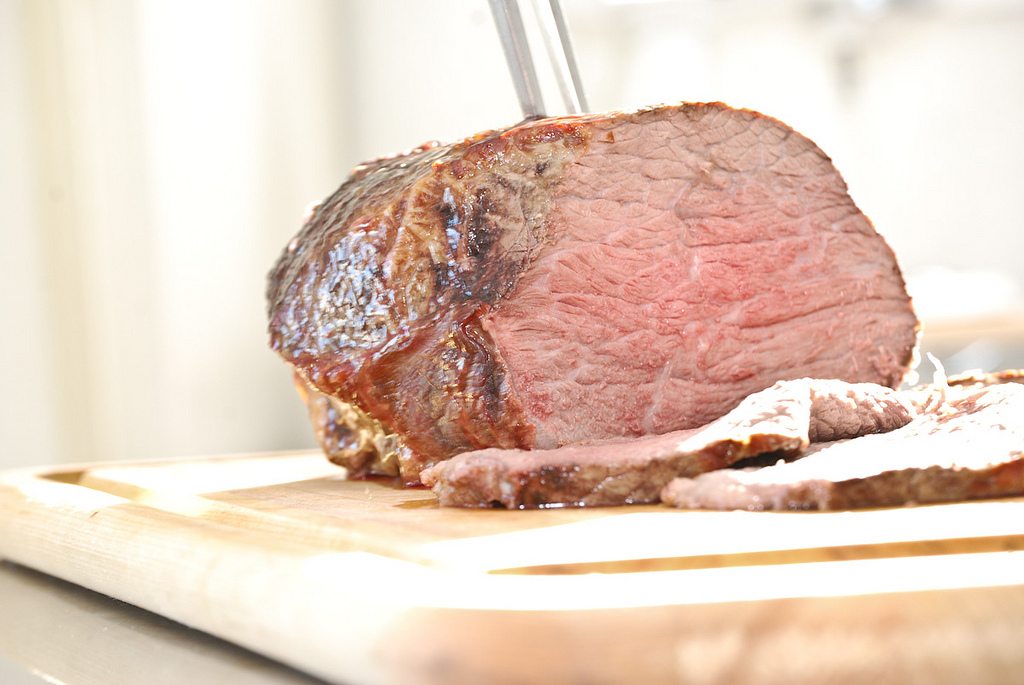Is your Sunday roast a wolf in sheep’s clothing?
Can it be? Have the deli meats truly betrayed us? Following the publication of a paper in October from the World Health Organisation (WHO) International Agency for Research on Cancer, processed meat is now described as a “definite human carcinogen”, and red meat as a “probable human carcinogen”. Since carcinogens are things that lead to cancer, it’s understandable that this information is being taken quite seriously. Is this the end of the road for all fast food chains and steak houses? Or, like our burgers, should we be taking all this with a pinch of salt?
In order to understand what this press release means, we must consider the previously established carcinogens, and give these new findings some context.
There are 3 basic classifications of carcinogens – Group 1, Group 2A and Group 2B. Group 1 contains “established carcinogens” – things proven to be linked with cancer, like smoking, bomb blasts or asbestos. Group 2A is for “probable carcinogens”, which include things like UV radiation or herbicides and pesticides. Group 2B contains “possible carcinogens”, which includes almost anything else you can think of.
Eating either to excess can go hand in hand with other unhealthy lifestyle choices that could be carcinogenic in themselves
Which group something goes into doesn’t depend on how likely that thing is to give you cancer, but on the strength of the evidence that it could. According to the most recent findings, sausages, kebabs and other processed meats are now in Group 1, and red meats are in Group 2A. While this does mean that the evidence against processed meats is fairly strong, it also means that something seemingly innocent currently in Group 2B – like condensed coconut oil, taking a walk through some bracken or hanging out near a magnetic field – could be the most fatal cause of cancer yet, and we just have no idea. Admittedly this does seem pretty far-fetched, and there would probably be some slightly more incriminating evidence if it were true. In reality we don’t know a whole lot about cancer (if we did it might not be the killer it is!) so anything we do learn is not to be taken lightly.
For WHO to release a statement of this nature, there has to be a certain level of confidence. Cancer experts reviewed a number of scientifically sound arguments from respected researchers in the field before combining them all to publishing their findings.
There are of course questions as to how the evidence going towards this conclusion was collected. There is an argument that there is an unhealthy user bias amongst people who eat red and processed meat and consequently get cancer. Eating either to excess can go hand in hand with other unhealthy lifestyle choices that could be carcinogenic in themselves, meaning research involving such people may be unreliable. Then again, some kind of bias could easily be applied to all research groups.
According to the paper published in October, Carcinogenicity of Consumption of Red and Processed Meat, an intake of 100g of red meat corresponds to a 17% increase in colorectal cancer risk. At first this sounds completely outrageous, and was enough for me to resolve never to touch a pork chop again, but context is crucial here. The risk on a normal basis is on average just 1.8%, so a 17% increase of this risk only actually means a new risk of 2.1%, which isn’t quite so terrifying. On the other hand, who wants to increase their risk of cancer by 17% at all, regardless of what it was before?
Never fear meat lovers, there are solutions to this problem! Here are a few things we can all do to play it safe and reduce the formation of carcinogenic compounds in our bellies:
- Marinate your red meat before you eat it. Herbs and spices, as well as things like onions and garlic, lemons, vinegars and honeys all reduce the creation of cancer-linked chemicals.
- Cook in liquid – “gentler” methods like this reduce carcinogen formation in the meat.
- Eat your greens! Eaten alongside meat, broccoli in particular helps break down carcinogenic chemical structures.
- Eat antioxidant-rich foods alongside meat – things like tea and coffee, certain berries and dark chocolate.
So there you have it! We don’t all have to go veggie quite yet, but a couple of tasty precautions might just save you a bit of trouble in the long run. Meat is definitely still our friend and a staple of the Western diet, but next time you order a big mac to go with your chicken nuggets, you might just want to think twice.


Comments